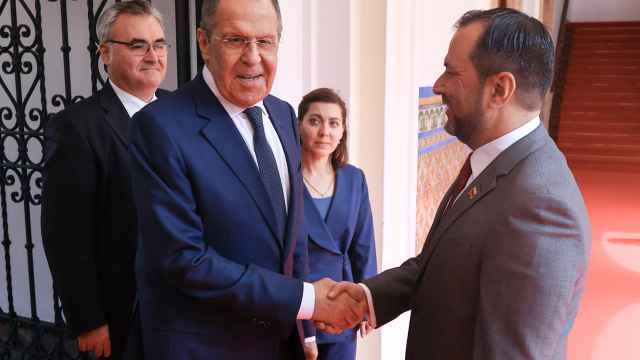Russia, stung by new U.S. sanctions, will focus more on selling its debt to investors from Asia and Europe and may adjust the currencies of its bond issues, but it won't change the amount planned for 2020, a senior Finance Ministry official said.
The United States in August banned U.S. banks from buying sovereign Eurobonds directly from Russia to punish Moscow for the poisoning of a former Russian double agent, Sergei Skripal, and his daughter, Yulia. Moscow has denied any wrongdoing.
Konstantin Vyshkovsky, head of the state debt department at the Finance Ministry, said the sanctions that came into force on Aug. 26 will not cancel the ministry's plan to borrow abroad but the ministry needs time to study their possible impact.
"The recent decisions of political nature by our U.S. colleagues and the ban on the participation of U.S. financial institutions in our primary offerings are an unfavorable factor that will clearly affect our actions," Vyshkovsky told Reuters in an interview cleared for publication Wednesday.
The Finance Ministry will need to study the availability of the dollar debt market when making the decision on whether to move away from issuing Eurobonds denominated in the U.S. currency, Vyshkovsky said.
"We need to understand to what extent the dollar borrowing will be available, no matter who buys it."
Still, Russia is likely to keep its external borrowing plan for 2020 at $3 billion, the same level as in 2019, Vyshkovsky said.
Despite lingering concerns about U.S. sanctions against Moscow that plagued market mood, Russian has successfully tapped the Eurobond market twice in 2018.
Borrowing at home
Russian sovereign bonds, denominated both in foreign currency and in rubles, are popular among foreign investors thanks to their yields and investment-grade ratings that Russia received from the three major rating agencies.
Non-residents held around 2.6 trillion rubles ($39.4 billion) worth of Russian rouble-denominated OFZ bonds in early August, which accounted for around 30% of OFZs issued.
"I don't think there are grounds for this share to decline substantially," Vyshkovsky said foreigners' share in OFZ bonds.
After fulfilling borrowing plan in the first half of 2019, the Finance Ministry decided to limit OFZ offering and started offering up to 25 billion rubles worth of OFZ bonds at weekly auctions in the third quarter, Vyshkovsky said.
The ministry would like to increase the overall tenor of its OFZ portfolio to five years from less than four at the moment, Vyshkovsky said.
Looking into 2020, Vyshkovksy said there were no reasons for increasing the borrowing amount envisaged in the three-year budget plan.
"One should not expect some drastic changes here."
A Message from The Moscow Times:
Dear readers,
We are facing unprecedented challenges. Russia's Prosecutor General's Office has designated The Moscow Times as an "undesirable" organization, criminalizing our work and putting our staff at risk of prosecution. This follows our earlier unjust labeling as a "foreign agent."
These actions are direct attempts to silence independent journalism in Russia. The authorities claim our work "discredits the decisions of the Russian leadership." We see things differently: we strive to provide accurate, unbiased reporting on Russia.
We, the journalists of The Moscow Times, refuse to be silenced. But to continue our work, we need your help.
Your support, no matter how small, makes a world of difference. If you can, please support us monthly starting from just $2. It's quick to set up, and every contribution makes a significant impact.
By supporting The Moscow Times, you're defending open, independent journalism in the face of repression. Thank you for standing with us.
Remind me later.







